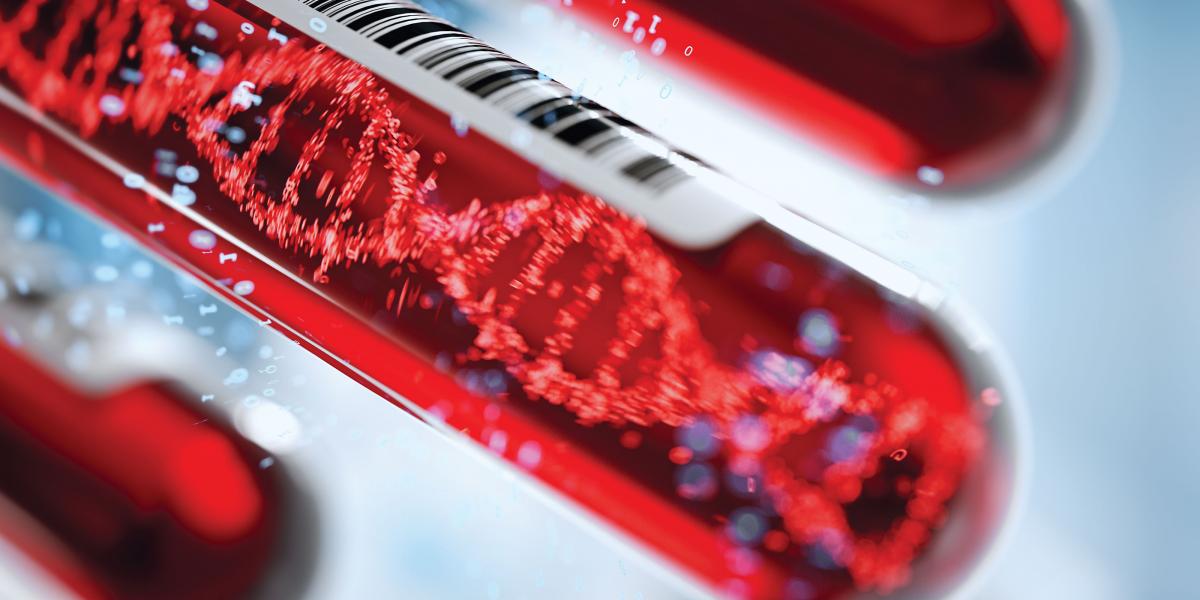A New Cancer Screening Tool Could Mean Earlier Diagnosis
A new screening test finds evidence of cancer in DNA fragments.
One of cancer’s deadly hallmarks is that it can grow quickly and often undetected until symptoms appear. But as cancer cells rapidly divide, they get messy in the way they package DNA in their nuclei. A new cancer screening tool called DELFI exploits that telltale disorganization—potentially leading to earlier diagnosis.
“DNA packaged in the nucleus is neatly organized in healthy cells but in disarray in cancer cells,” says Stephen Cristiano, PhD ’19. When cells die, DNA fragments—which retain packaging information—make it into the bloodstream. “It’s that difference in packaging we are able to detect,” he says.
Unlike cancer screening blood tests that identify genetic mutations in cancer cells, DELFI—which stands for DNA evaluation of fragments for early interception—looks at DNA fragmentation patterns across a person’s genome. Comparing an individual’s fragmentation patterns to those of a reference population can reveal whether the patterns are associated with cancer.
In a proof-of-concept study of 208 patients with various stages of seven cancers, DELFI detected cancer in 73% of patients (with four false positives in the control population of 215 subjects). That number rose to 91% when DELFI was combined with mutation-detecting analyses. DELFI was also up to 75% accurate in determining the cancer’s source, such as the pancreas or lung.
Cristiano, previously a PhD candidate in Biostatistics, was the lead author of the study, published online in Nature in May.
Cristiano finds DELFI exciting because it’s minimally invasive—requiring a single tube of blood—and the lab tests are inexpensive. “Our hope is this could be a part of your regular checkup instead of waiting for symptoms to occur,” Cristiano says. “Many don’t realize that even the symptoms stage is often too late.”
He acknowledges that many additional studies are necessary before DELFI can be used as a screening tool. “Our next steps would [include] a clinical trial setting to find out if it continues to yield these kinds of results, and we also want to see if we can improve the sensitivity of our test,” Cristiano says.
